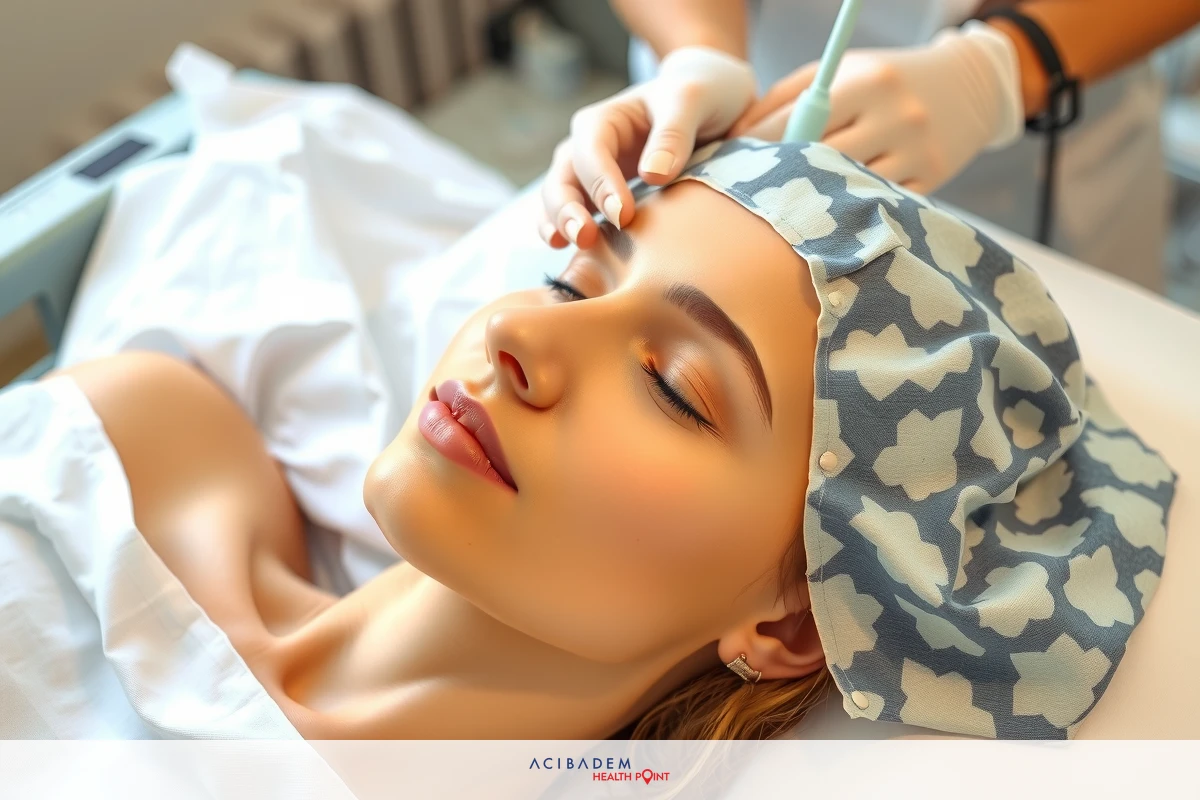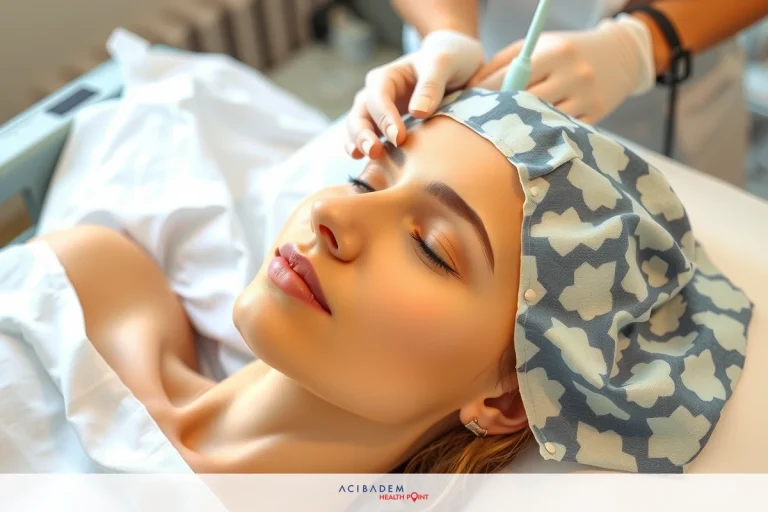What Happens When You Have Nose Surgery
What Happens When You Have Nose Surgery Nose surgery, medically known as Rhinoplasty, is an intricate operation performed on the nose to modify its shape, improve its functionality or both. It’s a common procedure that many individuals undergo for various reasons ranging from aesthetic preferences to medical necessities. This article aims to provide you with comprehensive information about what happens when you have nose surgery.
The process of nose surgery involves several steps including pre-operative preparation, the surgical procedure itself, and the post-operative care. Every step is vital and plays a significant role in the success of the surgery and the patient’s recovery. We will also discuss the benefits and potential outcomes of this procedure, shedding light on why it might be a beneficial choice for certain individuals.
Recovery from Nose Surgery
What Happens When You Have Nose Surgery The recovery process from nose surgery is an essential aspect that determines the success of the procedure. Immediately after the surgery, you may experience some swelling and bruising around the eyes and nose, which is completely normal. It’s important to note that everyone heals at their own pace, so your recovery process may be slightly different from another person’s.
In the initial stages of recovery, it would be beneficial to keep your head elevated, even while sleeping, to help reduce swelling. You may also be advised to avoid strenuous activities such as heavy lifting or intense workouts for a few weeks following the surgery. These precautions are important in ensuring your body gets ample time to heal.
During this period, it’s common to feel some discomfort due to congestion or slight difficulty in breathing through the nose. This is often due to the internal swelling within the nose, which gradually subsides within a few weeks. Your doctor may prescribe some medications to manage any pain and discomfort. It’s vital adhere strictly to these prescriptions for optimal recovery.
What Happens When You Have Nose Surgery Nose surgery recovery requires patience as it might take up to a year or more for your new nasal contour to fully refine. During this time you might notice gradual changes in the appearance of your nose as it refines to a more permanent outcome. Regular follow-up visits with your surgeon will also be necessary during this period to monitor progress.
Remember, taking care of yourself during recovery is just as crucial as the procedure itself. Following your surgeon’s instructions can make a significant difference in your healing process and final results. It’s important to maintain a positive attitude throughout this period and know that any temporary inconvenience will lead towards better health and wellbeing.
The recovery from nose surgery is indeed a journey that requires time, patience, and care. But with the right approach and mindset, it can result in a successful outcome that enhances both your appearance and quality of life.
Benefits and Outcomes of Nose Surgery
What Happens When You Have Nose Surgery Nose surgery offers a plethora of benefits and outcomes that extend beyond aesthetics. One of the primary benefits is the improvement in breathing function. Conditions like a deviated septum, which can cause breathing difficulties, are effectively addressed through nose surgery. Post-surgery, patients often report significant improvements in their ability to breathe, leading to better sleep quality and overall physical health.
In addition to functional benefits, nose surgery also plays a profound role in enhancing one’s appearance. It can reshape the nose, making it more proportionate to other facial features. This could involve reducing the size of the nose, reshaping the nasal tip or bridge, narrowing nostril width, or altering the angle between the nose and upper lip. The result is a balanced and harmonious facial structure that boosts self-confidence and improves perceptions of attractiveness.

Beyond individual benefits, the broader outcomes of nose surgery can be life-changing. From an emotional perspective, achieving a desired physical appearance can significantly improve self-esteem and mental wellbeing. Patients often report feeling more confident and less self-conscious about their appearance postsurgery. It’s important to note that while nose surgery can boost one’s confidence levels, it should not be seen as a cure-all for feelings of low self-esteem or unhappiness with one’s overall appearance.
It’s crucial to have realistic expectations about the results of nose surgery. While it can help align your appearance closer to your ideal look, perfection is not attainable. Potential patients must understand that every surgical procedure has its limitations and risks. However, with a skilled surgeon and a clear understanding of the procedure, most people find that nose surgery brings positive changes that enhance their quality of life.
Procedure and Post-Operative Care for Nose Surgery
What Happens When You Have Nose Surgery The procedure for nose surgery begins with a consultation where your surgeon will discuss your goals, evaluate your facial features, and develop a personalized surgical plan. The surgery itself involves making incisions inside the nose or across the skin dividing the nostrils, depending on the desired outcome. The surgeon then reshapes the bones and cartilage to achieve the agreed-upon aesthetic or functional changes.
Once this has been done, the incisions are closed, and a splint is placed to support the new shape of the nose.
Post-operative care is an essential part of the nose surgery process. Immediately after the operation, you might experience some discomfort, but this can be managed with prescribed pain medication. Some swelling and bruising are also to be expected. These symptoms typically peak within 48 hours post-surgery and gradually subside over the next 10-14 days. It’s important to follow all instructions provided by your surgeon during this period, including instructions about cleaning the surgical area and changing bandages.
What Happens When You Have Nose Surgery Follow-up visits will be scheduled so that your surgeon can monitor your healing process. During these visits, your surgeon will check on your recovery and address any concerns you might have. It’s crucial to attend all these appointments and follow all post-operative care instructions for optimal recovery. This includes avoiding strenuous activities until cleared by your physician, refraining from blowing your nose, limiting sun exposure, and maintaining a healthy diet to promote healing.
While the road to recovery from nose surgery can be a journey filled with patience and diligence, it’s important to remember that every step taken in post-operative care plays a crucial role in ensuring successful results. With time, resilience, and proper care, patients can look forward to experiencing the full benefits of their nose surgery.
Frequently Asked Questions
How long does it take to recover from nose surgery?
The recovery time can vary from person to person. Generally, the initial stage of recovery takes about 1-2 weeks, during which you may experience swelling and bruising. However, it can take up to a year or more for your nose to fully refine and for you to see the final results.
Will I have scars after nose surgery?
In most cases, the incisions for nose surgery are made inside the nose or in inconspicuous areas, resulting in minimal visible scarring. If an external incision is necessary, your surgeon will take care to make it as discreet as possible. Over time, any scars that do form tend to fade and become less noticeable.
Can nose surgery help with breathing difficulties?
Yes, nose surgery can address certain breathing issues. Conditions such as a deviated septum or nasal valve collapse can be corrected during the procedure, leading to improved airflow and better breathing function.
What risks are associated with nose surgery?
As with any surgical procedure, there are potential risks involved with nose surgery. These may include infection, bleeding, adverse reaction to anesthesia, scarring, asymmetry, or changes in sensation. It's important to discuss these risks with your surgeon during the consultation process.
Will my insurance cover nose surgery?
Whether or not your insurance covers nose surgery depends on various factors such as the purpose of the surgery and your specific insurance policy. It's best to consult with your insurance company directly to understand their coverage criteria and requirements for reimbursement or pre-authorization for the procedure. Please note that these are general answers and it's important to consult with a qualified medical professional for personalized advice regarding your specific situation.











